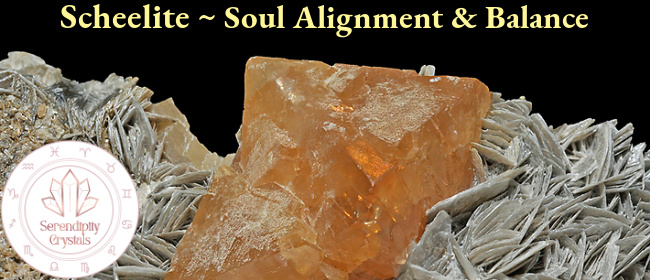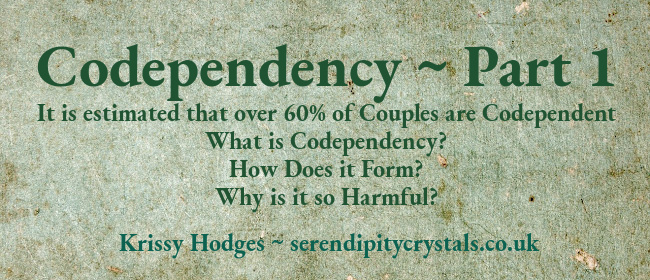
Krissy Hodges
Healing – Transformation – Empowerment

Pound sterling
-
Pound sterling
-
Australian dollar
-
Canadian dollar
-
Euro
-
Japanese yen
-
Swedish krona
-
United States (US) dollar
By visiting our site, you agree to our privacy policy regarding cookies, tracking statistics, etc.
Krissy Hodges
Healing – Transformation – Empowerment








Krissy Hodges
Healing – Transformation – Empowerment

















There is a systemic weakness and harmful set of behaviour plaguing an estimated 60% or more of couples globally. This behaviour has been bred into family dynamics for decades now and in my humble opinion, is the biggest issue we face in relationships today. It is called Codependency and it is slowly, but surely, destroying relationships and undermining family dynamics Worldwide.
Codependency is passed down from generation to generation as learned behaviour. Often, with each new generation, the behaviour becomes more and more damaging. It either leaves someone weak and without their own, personal power, it creates enablers/rescuers/fixers who are controlling under the guise of ‘caring’ or it morphs into an unrealistic sense of entitlement. Any of these manifestations can cause severe harm and difficulty in adulthood, leading to toxic relationships, misery, helplessness, resentment and often the breakdown of the family unit as the parents simply cannot hold their relationship together.
Even worse…… Codependency is at the root of Empath -V- Narcissist relationships and why so many struggle to get out of the relationship once they are in it. It’s Codependency that keeps them locked in the push/pull dance this relationship creates. The Empath -V- Narcissist dynamic is the most toxic relationship we know of. It destroys couples, often damaging their psychology and ability to love or be emotionally, mentally or physically intimate for the rest of their lives. In my experience, it is the Number 1 psychological & behavioural issue we face today and what’s really interesting is that the majority of people don’t even know they have it!

How many couples do you know that go about life as if they are joined at the hip? They have very few friends or interests of their own and do nearly everything together? In fact, it’s hard to get them to do anything on their own as an individual. How many people would you say are in a relationship where they aren’t happy and it could even be seen as toxic, but they struggle to do anything about it? How many people do you know that are fixers, healers or enablers that constantly rush in to help everyone else at the expense of their own health, wealth or happiness? Codependency is often disguised as concern. How many of the younger generation do you know that swan around with an overinflated sense of entitlement that seems to come from nowhere? All of these examples are likely to have Codependency at the root of the behaviour.
The dictionary definition of Codependency is:
An emotional and behavioral condition that affects an individual’s ability to have a healthy, mutually satisfying relationship. People with codependency often form or maintain relationships that are one-sided, emotionally destructive and/or abusive. The codependent person eventually loses all sense of self. They lose touch with their own emotions and live entirely to make the other person happy or to keep them calm. They begin to feel guilty when the other person doesn’t change because they feel that if they just did more, the person would be better. In the end, they end up doing more harm than good.

So what causes Codependency? There are several different situations that can create it and they all begin during childhood. If our parents and/or grandparents are codependent, then we grow up thinking this is normal and how relationships should be. Codependency becomes learned behaviour.
Codependency is also caused by trauma within the family dynamic. Bear in mind that trauma in this instance is as perceived by a young child (between the ages of 3-7) eg. regular arguments between parents may not be deemed by those adults as ‘traumatic’, but for a three or four year old child in the bedroom next door who is constantly hearing shouting, bad words and their parents fighting, it is traumatic for them. Children do not have the logic or rationale of adults. If there is a consistent level of abuse, neglect, aggression, fighting or unhappiness within the family home, this will create a deep lack of safety and neediness. If our childhood family dynamic creates fear, anger or shame that has no safe space to be expressed, we suppress those emotions & learn to ignore our own emotional needs. However, we become hyper aware of our parents needs and as any child does, they just want to be loved, so will morph themselves into whatever personality keeps them safest and avoids the most conflict or negative attention.
A child will cling to their primary care giver if they do not feel safe. However, that attachment or connection isn’t based on love, security and happiness. It’s based on fear and that part of their mind will never stop seeking that safety until it is reprogrammed. This means that when we’re drawn to partners as an adult, we are subconsciously governed to connect with someone who causes us to feel the same fear we experienced as a child ~ as that is what feels ‘normal’ to us, even though it is far from it. The core emotions at the root of Codependency are rejection & abandonment and if there is no one in our lives to perpetuate the pattern as an adult, we will turn on ourselves and reject and abandon ourselves in some way.
Codependency is also created if a parent has a child for their own benefit and does not treat the child as the unique individual they are. Instead, that child becomes an extension of their parent’s own neediness and grows up learning to feel, speak and do whatever keeps that parent happy, regardless of their own needs or personality. This results in them growing up being unable to fully love themselves, independent of other people’s love, validation or attention. They end up being unable to recognise their own worthiness without being cared for or needed by someone else.

Something I will state clearly is that our parents knew no better. This post is by no way meant to lay blame at anyone’s door or for us to view our parent’s negatively. My parents are fantastic people who did the very best they could to give me a good upbringing and I love them dearly. They weren’t aware they had their own, unresolved childhood trauma or that they carried Codependency.
If we are codependent and become parents, we teach our children how to become codependent too. Our children learn from our behaviour and mimic us, so become codependent themselves. OR, as a defence mechanism against something they can subconsciously feel isn’t healthy, they will reject the codependency and instead, become independent & entitled in a way that is demanding & unhealthy.
If we always sacrifice ourselves for our children, parents or others, then our children will go on to sacrifice themselves as adults. Whilst it’s OK to put others first sometimes, it is NOT OK to sacrifice our own needs & happiness on a consistent basis ~ particularly as parents who are leading by example. Endless, codependent sacrifice will eventually lead to resentment, bitterness, misery and going through the motions in life.
Look at our current, young generations ~ how many of them act in a codependent way, glued to their girlfriend or boyfriend and struggling to do things for themselves or on their own once they’re in a relationship? How many act in an entitled way and expect their partner to jump and fulfil all of their expectations? How often do you hear them complaining of narcissistic people in their environment? How far do you think any of this will get them in life?
As parents or self aware individuals (whether parents or not), it starts with us. We are never too old to own our mistakes, to gain self awareness around the things we don’t know until we know and to pass that learning on at any point in time ~ whether our child is 13 or 30.
Part 2 of this blog series on Codependency will be issued next month and will dive into how we can release, heal and recover from Codependency. Or you can follow the daily, evening posts on the Serendipity Crystals Facebook page HERE.
With Love, Krissy Hodges
Sign up & receive a FREE Easy Guide to Crystals eBook
4 thoughts on “Codependency Part 1 ~ The Issue”
Truly an eye opener! I’m looking forward to part II
Most welcome and thank you 🙂
Great article!
Thanks so much Clare